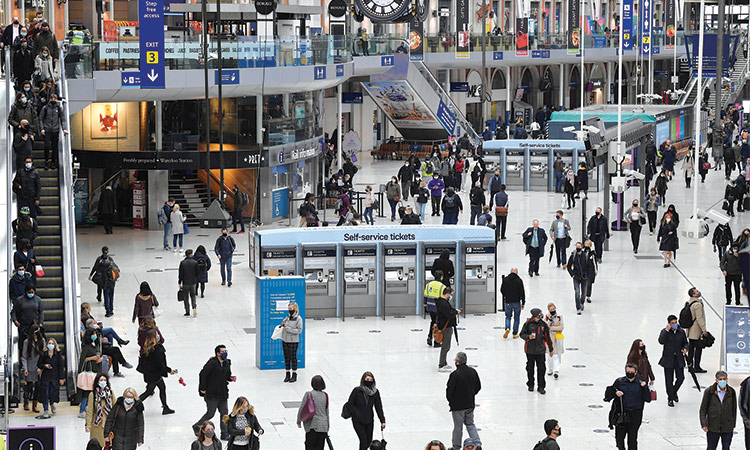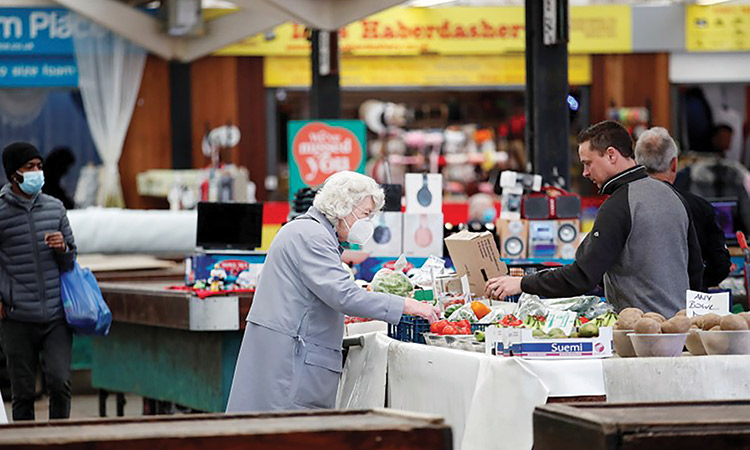UK housing market stalls, credit card borrowing accelerates: BoE

Mortgage lender Halifax forecast last month that house prices will fall around 8 per cent this year
British lenders approved 46,075 mortgages in November, down from 57,875 in October and marking the lowest level since June 2020, when the housing market slowed to a crawl following the onset of the COVID-19 pandemic.
A Reuters poll of economists had pointed to approvals of 55,000.
Other gauges of the housing market show a sharp slowdown underway after house prices surged by around a quarter during the pandemic.
Mortgage lender Halifax forecast last month that house prices will fall around 8 per cent this year, and BoE interest rates reached 3.5 per cent in December, their highest since 2008 and up from 0.1 per cent a year earlier.
Bond market turmoil triggered by former prime minister Liz Truss’s short-lived tax-cut plans had already caused many lenders to withdraw mortgage offers in October.
The BoE said lending to consumers rose in net terms by 1.5 billion pounds ($1.8 billion) in November - driven by a 1.2 billion jump in credit card borrowing, the largest such increase since March 2004. The figures are not adjusted for inflation.
While in normal times rising consumer borrowing often reflects a growing economy, economists point to soaring energy bills, food prices and borrowing costs as some of the biggest drivers today.
“November’s money and credit figures showed further signs that higher interest rates are dampening activity, particularly in the housing market. And this will be a constant theme throughout the year ahead,” said Ashley Webb, an economist with consultancy Capital Economics.
Economists polled by Reuters mostly say 2023 will be a tough year for Britain’s economy, with the consensus pointing to a 0.9 per cent contraction this year.
UK grocery sales: British grocery sales rose 9.4 per cent to a record 12.8 billion pounds ($15.3 billion) in the four weeks to Dec.25, though growth was driven by price inflation rather than increased purchasing, market researcher Kantar said on Wednesday.
It said sales measured by volume, or the amount people bought, fell 1 per cent year-on-year, showing the challenges shoppers are facing during a cost-of-living crisis.
“This story played out across the traditional Christmas categories. For example, value sales of mince pies soared by 19 per cent but volume purchases barely increased at all,” said Fraser McKevitt, Kantar’s head of retail and consumer insight.
Kantar said grocery price inflation was 14.4 per cent in December, down from 14.6 per cent in November, with prices rising fastest in markets such as milk, dog food and frozen potato products.
“This is the second month in a row that grocery price inflation has fallen, raising hopes that the worst has now passed,” McKevitt said.
Separate data published on Wednesday by the British Retail Consortium showed fresh food prices at UK supermarkets in early December were 15.0 per cent higher than a year earlier, the biggest annual increase since at least 2005 when records started. Kantar noted that consumers continued to trade down to supermarkets’ own label products, with sales rising by 13.3 per cent, well ahead of a 4.7 per cent increase in branded lines. It said visits to supermarkets increased 5.2 per cent year-on-year. Online grocery sales rose 4 per cent, though its share of the market fell 0.6 percentage points to 11.6 per cent. Market leader Tesco, Sainsbury’s and Asda all delivered solid performances, with sales on a value basis up 6.0 per cent, 6.2 per cent and 6.4 per cent respectively over the 12 weeks to Dec.25.
Shares in Tesco were up 1.9 per cent in morning trading, while Sainsbury’s was up 2.6 per cent. But German-owned discounters Aldi UK and Lidl GB remained the fastest growing chains with growth of 27.0 per cent and 23.9 per cent respectively, partly reflecting new store openings.
Morrisons and Waitrose were the laggards, with sales falls of 2.9 per cent and 0.7 per cent respectively. On Tuesday, Aldi itself reported a 26 per cent increase in December sales.
Tesco and Sainsbury’s are due to update on Christmas trading next week. Overall UK inflation is running at 10.7 per cent and consumers face the prospect of a tighter squeeze in 2023, with higher taxes and mortgage rates and scaled-back government support on household energy bills.







